Sayyed Abbas al-Mousawi: A leader in battle, a father at heart and a legacy eternal
By Hiba Morad
Today, February 16, marks the 33rd martyrdom anniversary of Sayyed Abbas al-Mousawi, the former Secretary General of the Lebanese resistance movement Hezbollah, a towering and revered figure in the illustrious history of the Islamic resistance in Lebanon.
Despite his brief tenure as Hezbollah leader, serving between 1991 and 1992, he left an indelible mark, shaping the resistance movement with unwavering determination until his assassination by Israeli occupation forces, his family recounted to the Press TV website.
His daughter, Batoul al-Mousawi, reflected on her legendary father’s unmatched devotion, noting that Sayyed Abbas dedicated his short yet impactful life to military and social causes, traveling extensively in pursuit of his mission.
"Even today, we continue to witness the fruits of his hard work, which stemmed from his sincere dedication," she said in an exclusive interview with the Press TV website.
On February 16, 1992, as people in Lebanon were commemorating the eighth martyrdom anniversary of Hezbollah founder-leader Sheikh Ragheb Harb, Israeli Apache helicopters ambushed his convoy in the town of Tefahta, assassinating him, his wife, their five-year-old son Hussein, and four others.
They were returning from a ceremony for Martyr Harb when they were attacked on the way to Beirut.
A staunch advocate of resistance against the Zionist entity, Sayyed Abbas drew deep ideological and strategic inspiration from Sheikh Harb’s unwavering position against Zionism.
Thirty-three years after his martyrdom, the Press TV website revisits his extraordinary life – a story of resilience, sacrifice, and an enduring legacy that continues to shape the present.
At the frontlines
From the very beginning, Sayyed Abbas emerged from among the people, living among them, understanding their struggles, and sharing in their hopes, his family told the Press TV website.
He was not just a leader but a friend, a mentor, and a father figure whose presence was deeply cherished. His love for the people was boundless, and he reciprocated their affection with unwavering care, guidance, and an unshakable commitment to their cause.
“A humble leader, friend, and father figure, he provided guidance and spread awareness among the resistance fighters who stood against the apartheid regime and its occupation,” his daughter Batoul recalled, noting that he was a constant presence in the mosques, not only leading prayers but also engaging in deep discussions with young people about life, faith, and resistance.
His words left a profound impact on those young men who gathered around him, many of whom later joined the resistance movement against the Zionist entity.
Sayyed Abbas was not a leader who commanded from afar. He stood with these young men on the front lines, facing the Israeli occupation forces shoulder to shoulder, his daughter stated.
"He possessed a unique personality; he was loving, humble, and wise. As a mentor, he was well-educated and deeply knowledgeable about various aspects of life," Batoul said.
"He devoted his life to serving the people, defending their rights, protecting the land, and empowering others to stand up for themselves. He taught them how to live with dignity and resist oppression. His heart beat for South Lebanon and Palestine and was a staunch defender of the Palestinian cause.”
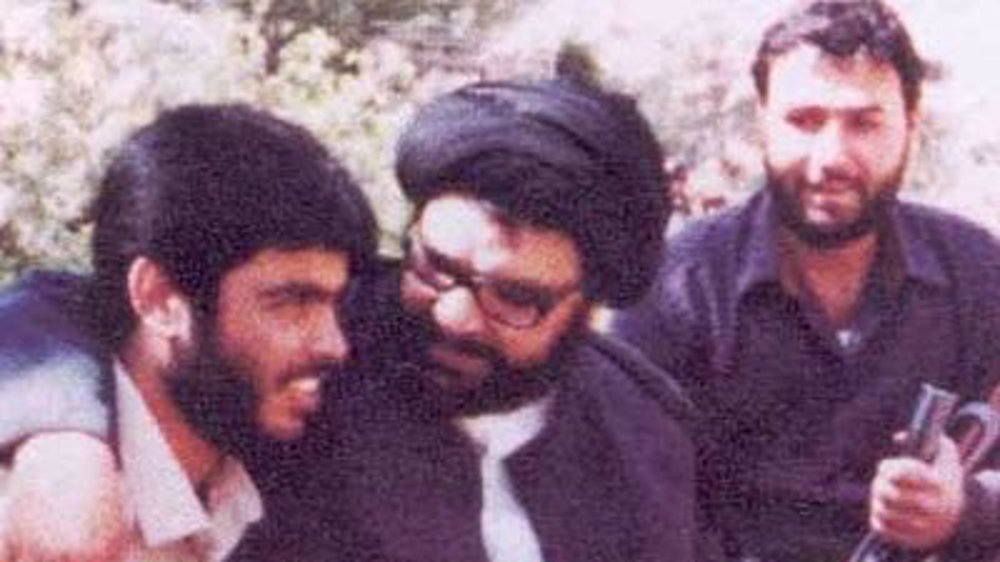
His sister, Hanaa al-Mousawi, echoed these sentiments, reinforcing the depth of Sayyed Abbas’s commitment to the cause of struggle against the Zionist occupation.
"He was always present among the young men who resisted the occupation. He led them, managed and directed numerous operations against the Israeli forces in Lebanon," she told the Press TV website in an exclusive interview.
Hanaa further emphasized her brother’s fearless leadership despite various threats.
"He was a military leader endowed with wisdom and insight. Known for his courage, he refused to remain confined to his office. Instead, he invested a great deal of time and effort in the young men and resistance fighters on the battlefield,” she stated.
A beautiful, hardworking personality
For the people of Lebanon, including his family, Sayyed Abbas was more than a leader. He was a beacon of inspiration, embodying selflessness, resilience, and an unwavering commitment to serving the people, irrespective of class and creed.
His daughter Batoul described him as a man of immense wisdom and boundless energy, always striving to uplift those around him.
“He imparted knowledge in various fields, encouraged continuous learning, and inspired making every effort in life. A humble scholar, he loved and stood by the poor, displaying kindness, love, consideration, and compassion. He embodied the true essence of Islam and its beautiful manners,” she told the Press TV website.
Her words reflected a deep admiration for the late Hezbollah leader, highlighting how Sayyed Abbas structured his life with remarkable discipline.
Every moment was precious, and he meticulously planned his time to maximize productivity on all fronts. As a devout Muslim, his faith extended beyond rituals and he embodied it through his actions, humility, and impeccable character.
“He was mindful not to hurt others' feelings, offering advice with humility and without any sense of arrogance or superiority. He lived humbly, like the poor,” Batoul said.
His sister Hanaa reaffirmed his deep compassion for the underprivileged, recalling how he would go to great lengths – sometimes even taking out loans – to help those in need.
His connection with the poor was not one of charity alone but of genuine solidarity and he treated them as equals, ensuring no one was left struggling in silence.
Hanaa also painted a vivid picture of her brother’s relentless dedication, noting that he sacrificed his own comfort to fulfill his duties and responsibilities.
“I remember very well that he would come home late at night from work and tell his wife, ‘I will take a 15-minute nap, please wake me up if I fall into a deep sleep,’” Hanaa recalled.
“I used to wonder and ask him, ‘How can you sleep so little? Aren’t you tired?’ I also remember how Um Yasser would lovingly prepare good food and fresh juice to boost his health and energy. She was genuinely caring and supportive.”
Despite the heavy burdens of leadership, Sayyed Abbas remained connected to the concerns of the people. He did not lead from a distance but walked among them, feeling their struggles as his own.
His legacy of service and sacrifice lives on, encapsulated in his enduring words: "We will serve you with our eyelids," his sister said.
A loving father, husband, and brother
Batoul’s voice carried warmth and admiration as she spoke of her father’s boundless love and care for his children, other family members, as well as people in the community.
“My sister and I were cherished by our father. He took great care of us, giving us much attention and affection. Although he did not neglect my brothers, he believed that girls and women deserved and needed respect and love. He showed us immense respect, love, and compassion, engaging in conversations and joking with us,” she told the Press TV website.
Despite his demanding schedule, long work hours, and frequent travels, Sayyed Abbas never let his responsibilities distance him from his family. He made it a priority to spend time with Batoul and her siblings, engaging them in meaningful discussions and treating them with respect.
These conversations were moments they treasured, shaping their understanding of life, faith, and the world around them, Batoul said.

“These moments of presence compensated for his absences, providing us with quality time. He was aware of all our religious, academic, social, and psychological needs and whereabouts. He encouraged us to participate in religious and cultural events and stay up to date scientifically.”
Even in their playtime, he was present, laughing and sharing joyful memories.
“I fondly remember the fun times we had playing together. He also encouraged us to pray on time, complete our homework, and offered advice on choosing friends and spending our free time,” Batoul recalled fondly with an air of nostalgia.
Sayyed Abbas’s deep love and devotion extended to his wife, Um Yasser, with whom he shared a marriage built on the foundation of mutual respect, admiration, and companionship.
“I can say it was a genuinely happy marriage, a model for couples. My father deeply loved and respected my mother, expressing his admiration frequently,” the daughter said.
He always asked her for forgiveness for being busy due to work and urged us to take care of her and help her. He believed she was a successful wife, mother, teacher, and an active member of society.”
His sister, Hanaa, also spoke of his sense of responsibility and kindness as a brother.
“All my brothers were kind and caring, but he (Sayyed Abbas) was different. When my mom passed away, my other brother who lived in Germany said he would take us to live with him. Sayyed Abbas refused, and he took us to live with him in Baalbek,” she recalled.
“He treated us like as if we were his children, followed up on all our matters, and always made sure all our needs were met. His wife Um Yasser was also a kind and loving mother.”
Sayyed Abbas carried the burdens of leadership yet never let them overshadow his role as a devoted father, husband, and brother.
A leader who knew no borders
Sayyed Abbas was not just a leader of his people in Lebanon. His influence transcended borders, embodying a vision that extended far beyond his own country.
His sister, Hanaa, recalled how a politician once described him as a “transnational leader and man”, a title that perfectly encapsulated his extraordinary character.
“Being described as a transnational leader is related to the values and manners of that person, which is thought to be unique,” she told the Press TV website.
His depth of thought, resilience, and dedication to justice were shaped by the teachings of Grand Ayatollah Muhammad Baqir al-Sadr, a scholar and revolutionary leader whose influence left a lasting imprint on Sayyed Abbas’s life.
“He was a student of Grand Ayatollah Baqir al-Sadr, who contributed as both a scholar and an uncompromising activist, which helped shape his unique personality,” Hanaa explained.
Al-Sadr was a towering intellectual and an unwavering political force, standing fearlessly against the tyranny of Saddam Hussein’s regime in neighboring Iraq.
His scholarly brilliance spanned both secular and Islamic fields, and from the very beginning, he positioned himself as a brave political actor under the banner of Islam.
His vision was clear: to establish a just and value-based Islamic social order, one that was not only viable but morally superior to the prevailing secular capitalist and socialist systems.
“Sayyed Abbas was the student of this teacher and mentor, who not only encouraged him and his colleagues to learn Islamic teachings but also educate themselves in all fields of life and get ready to lead the people,” Hanaa said.
Sayyed Abbas carried this mission forward, devoting his life to three fundamental causes in Lebanon: raising awareness and spreading knowledge among the people, alleviating poverty, and ending the Israeli occupation.
His leadership was not confined by geography. It was defined by principles, justice, and a relentless pursuit of freedom.
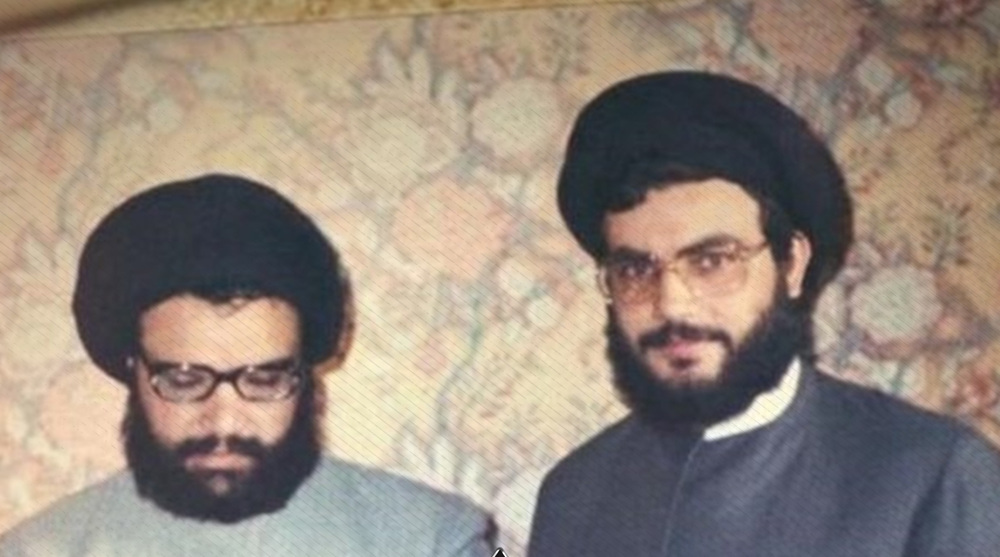
A forever legacy
If assassinations and bombings were true victories, then the resistance would have crumbled the day her father was martyred, Batoul reflected. But history tells a different story.
“Instead, it continued to thrive. Despite the assassination of more leaders by Israel, the resistance only grew stronger and larger. We deeply miss the martyrs, and I miss my father, but their thoughts and intellect remain alive,” she told the Press TV website.
For Batoul, this truth extends to all the martyred leaders of the resistance, including the most recent, Sayyed Hassan Nasrallah and Sayyed Hashem Safiedine.
“They live on within us, and their legacy will endure forever. They are eternal and will continue to inspire us. We will follow their teachings and pass on their legacy to future generations until we achieve ultimate victory. The Israeli enemy should know that we will seek justice for their blood at the right time,” she affirmed.
She also drew a striking parallel between the martyrdom of her father and Sayyed Nasrallah.
“The assassinations of my father, Sayyed Abbas al-Moussawi, and Sayyed Hassan Nasrallah are similar in that they were both killed by the ruthless Israeli regime. They were cunningly targeted by the Zionist enemy, who could not tolerate the presence of such charismatic and impactful leaders,” she noted.
“However, the enemy was mistaken in thinking that assassinating these leaders was an accomplishment. Just as the resistance grew stronger after Sayyed Abbas's assassination in 1992, it will similarly regret the assassination of Sayyed Hassan. We, the people of the resistance, grow more determined and resilient with each martyr that falls.”
Batoul’s words were echoed by her aunt, who reinforced the idea that these cowardly assassinations only make the resistance stronger.
"Israel claims it achieved victory by assassinating our leaders, but they are gravely mistaken. These leaders have nurtured and inspired hundreds of thousands of fighters who embody the entire resistance philosophy in their minds and hearts. They remain dedicated and steadfast, refusing to live in humiliation or abandon the cause."
She further invoked the words of Imam Khomeini, drawing strength from his wisdom.
“Imam Khomeini had said ‘Kill us; our nation will become more awakened,’ and this is exactly the case with us and our resistance. Israel kills us and our leaders, and we grow stronger, more determined, and dedicated to freeing our land and people and fighting tyranny,” she said.
Her words echoed across time, finding resonance in a defining moment 33 years ago at the funeral of Sayyed Abbas in Nabi Sheet. Martyr Sayyed Hassan Nasrallah stood before the people and reaffirmed the unwavering creed of the resistance.
"We shall continue this journey, even if we are all slain, martyred, or have our homes demolished over our heads. We shall not abandon the path of the Islamic resistance. Brothers, the bright future belongs to the Islamic resistance,” he said at the time.
And so, the legacy endures – etched in blood, sacrifice, and an unyielding commitment to justice.
VIDEO | Press TV's news headlines
Hamas: Israel escalating ceasefire violations in Gaza
Venezuela's government declares unwavering unity behind Maduro
VIDEO | Global outcry over Venezuela president abduction
Iran keeps wheat import subsidies despite cutting other food supports
Venezuelan military stands with acting president after US kidnapping of Maduro
VIDEO | Press TV's news headlines
VIDEO | Protesters in Toronto slam US kidnapping of Venezuelan president


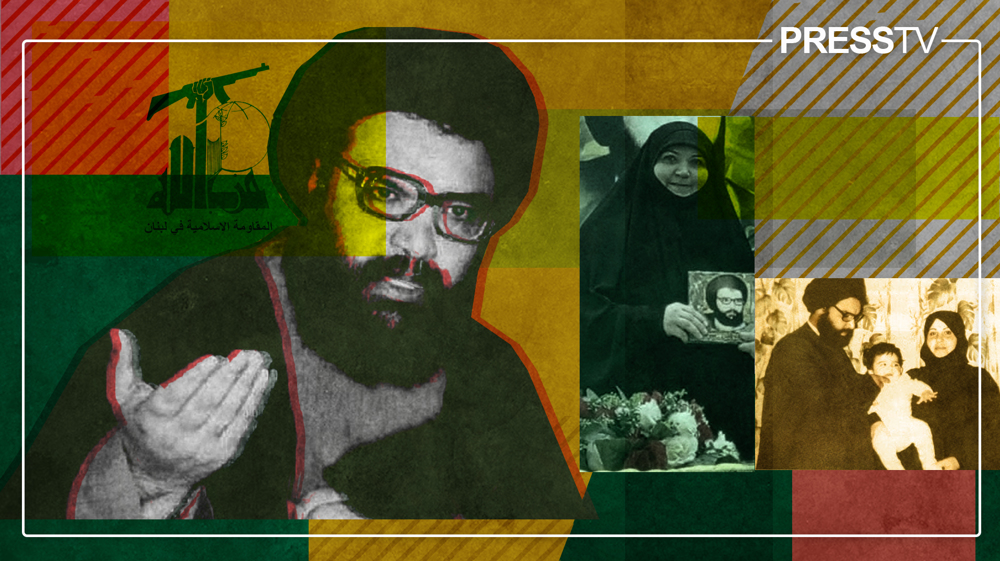
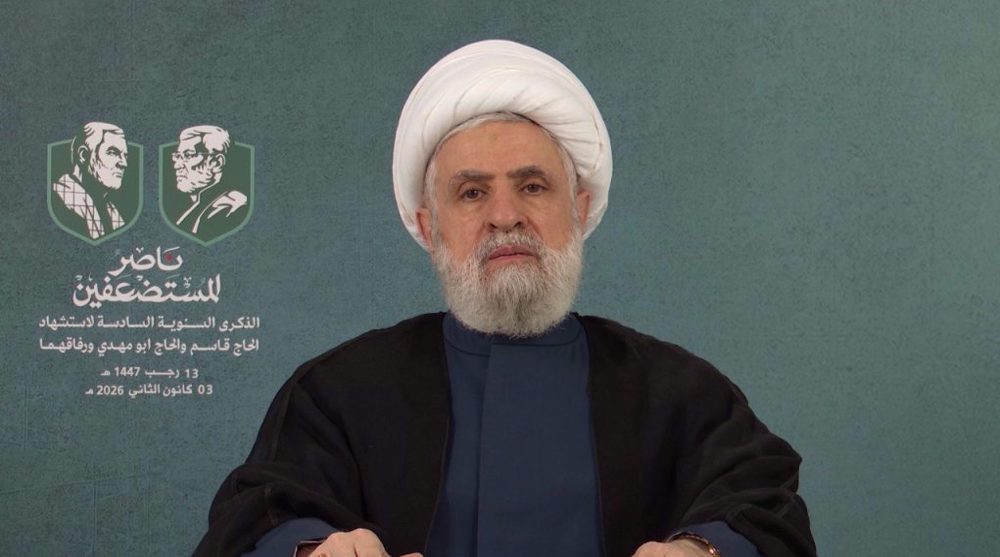
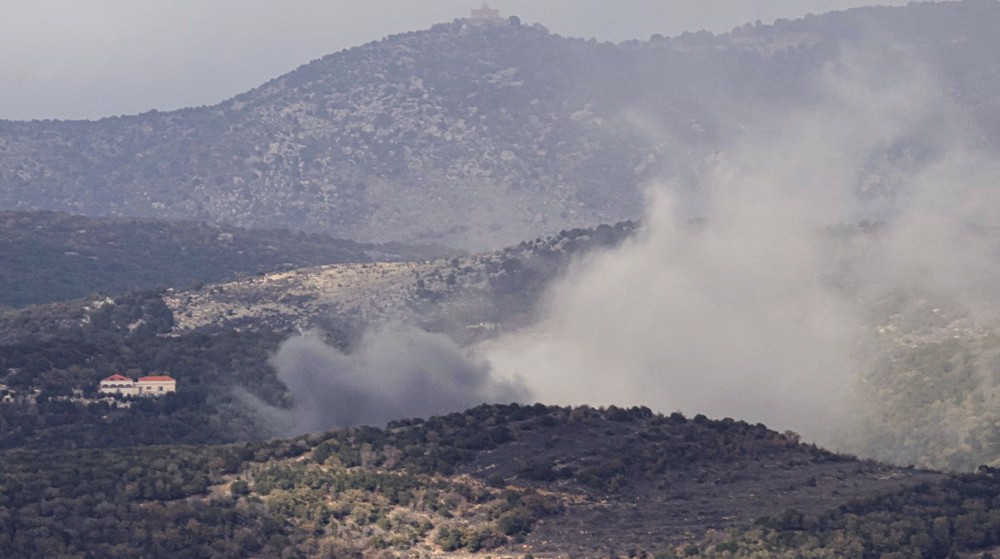
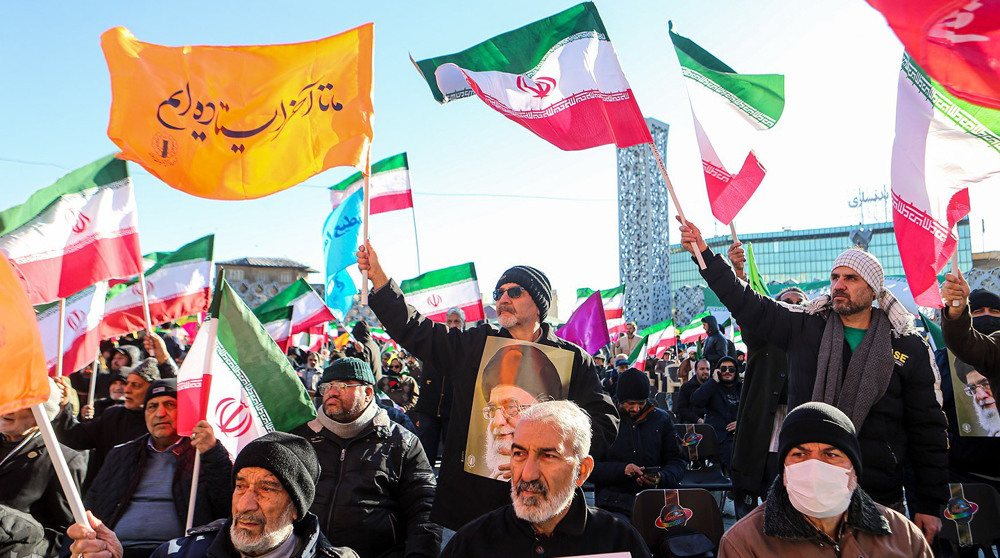



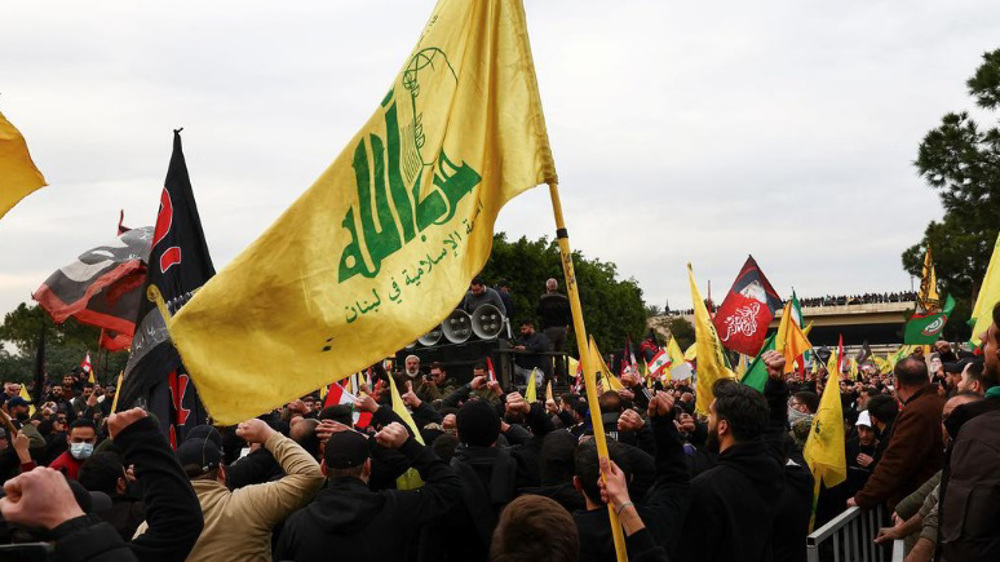
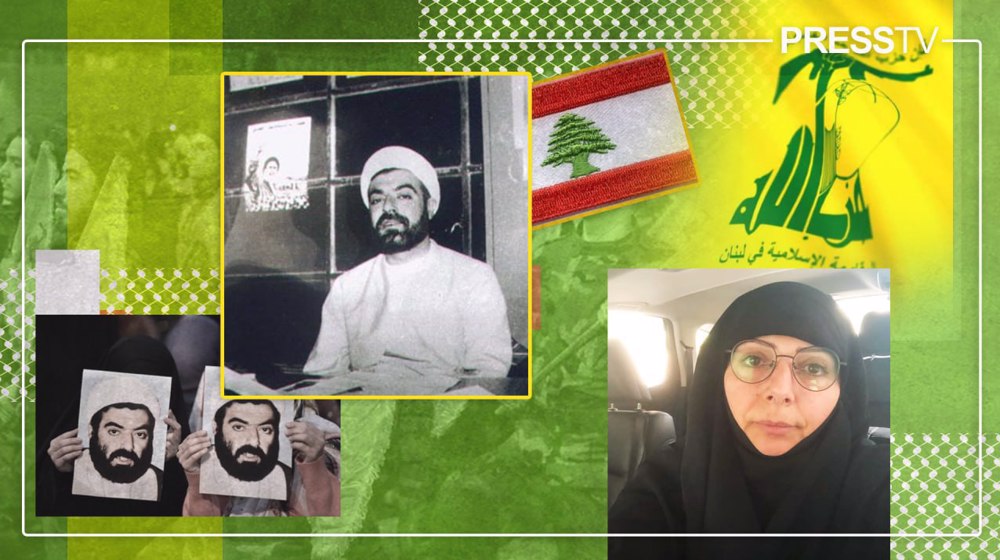
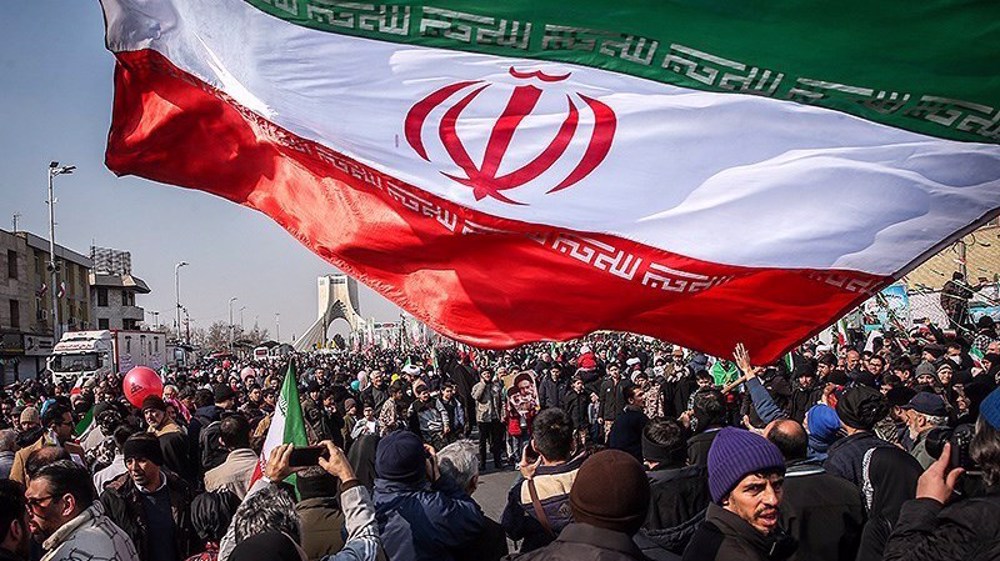
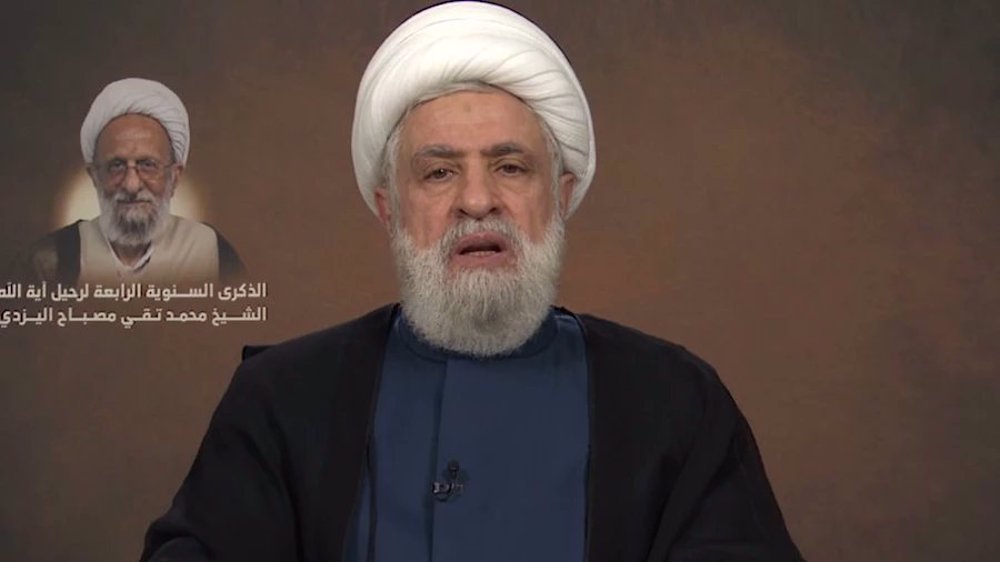
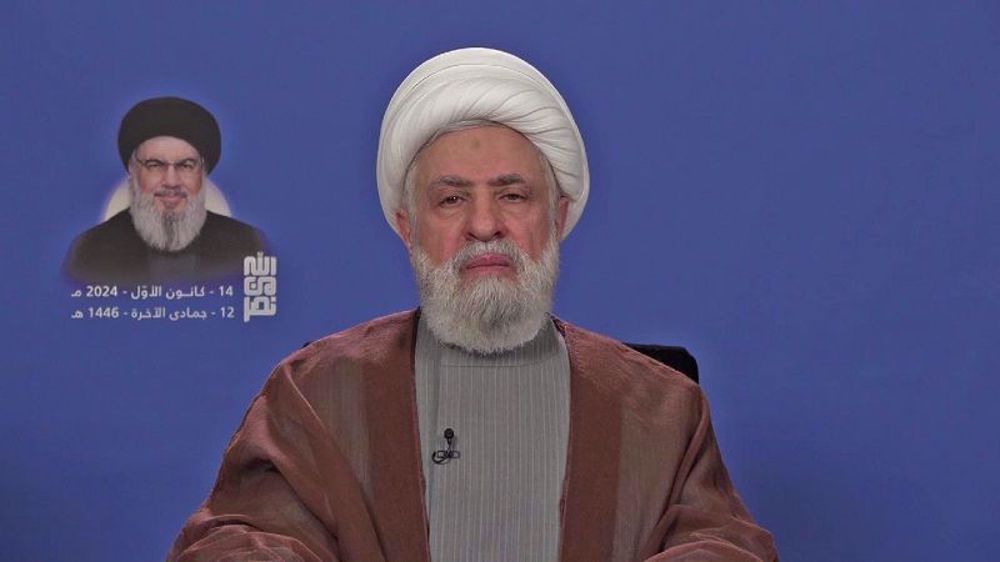

 This makes it easy to access the Press TV website
This makes it easy to access the Press TV website